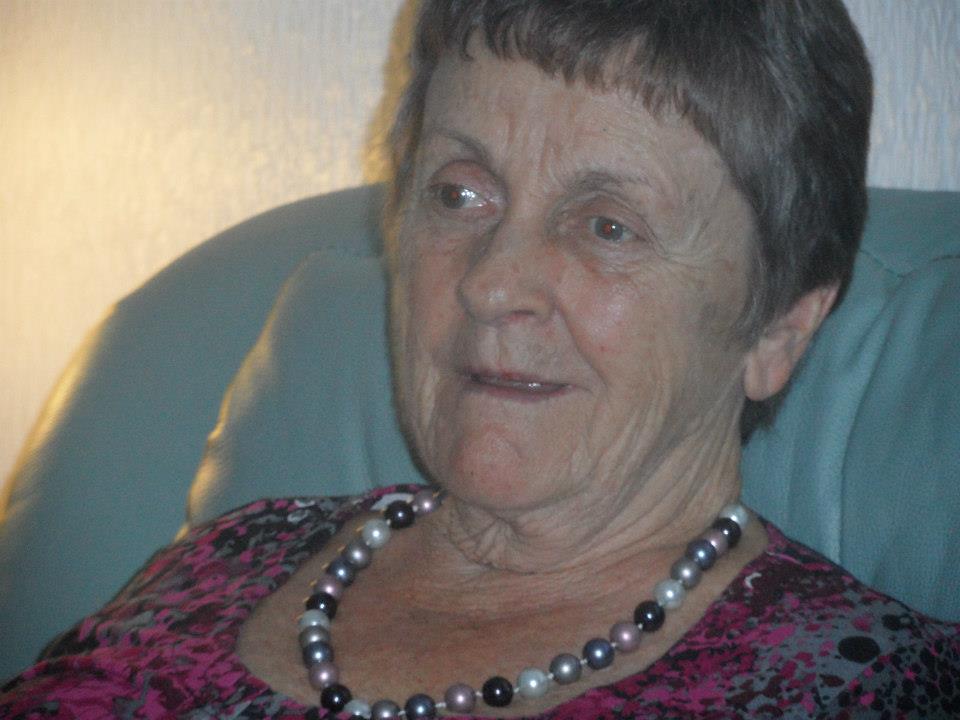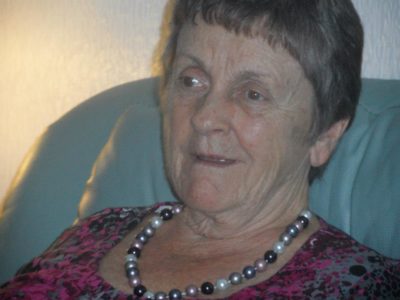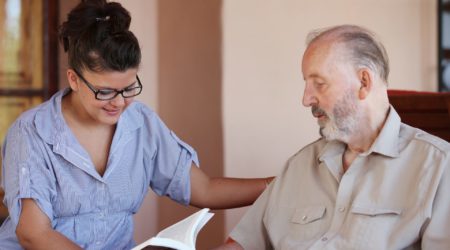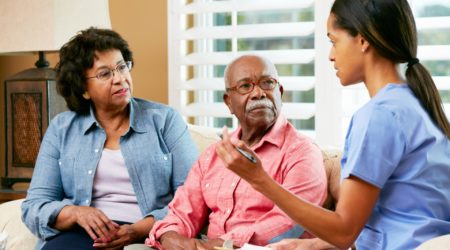



Jill
Jill shares the story of her mum, Maureen, who was diagnosed with advanced pancreatic cancer in January 2021.
My mum, Maureen, was 80 when she was diagnosed with Stage 4 pancreatic cancer in January 2021.
She had been feeling a bit off colour over Christmas, and by the start of January this was accompanied by a nagging pain in her side, so she phoned her GP for an appointment.
The appointment took place on 14th January, by which time the pain had increased and mum thought her skin was starting to look a bit yellow. The doctor said that she needed some tests doing and that he would write a referral letter for her.
Getting a diagnosis
Mum had private medical insurance, so she contacted a gastroenterologist who had treated her before, and a telephone appointment was arranged for the 20th. By the time she had the appointment the pain was worse and her skin had definitely turned yellow. The specialist said that she needed tests urgently and that the quickest way was for her to be admitted as one of his NHS patients by presenting herself at A&E the following morning.
After a couple of days in hospital we got the news we had been half expecting. The cancer had started in her pancreas and had spread to her liver and her lungs.
The doctors wanted to keep her in to fit a stent to help drain away some bile, which would give her some relief from the pain and nausea, and also reduce the level of jaundice she had. They also suggested doing a biopsy to see if it was possible to do some remedial chemotherapy, but Mum refused that option – she didn’t want the whole thing prolonging when death was the inevitable outcome.
Managing symptoms
She was released from hospital on 5th February, her 81st birthday, having had the stent fitted.
She brought home a chemist’s shop full of drugs – morphine for the pain (a slow release tablet to take twice a day, and also liquid morphine to take as and when needed), anti-sickness medication (Metaclopramide), stool softeners, laxatives, and Creon® to help her digest her food. There was also a large bag of “anticipatory” medicine for the district nurses for when her condition deteriorated.
For the first couple of weeks she struggled with nausea. The GP changed her anti-sickness medication to Cyclizine, but it didn’t help. She was also prescribed antibiotics in case she had a urinary tract infection, as she was displaying some signs of being confused. The district nurses started injecting an anti-sickness drug instead. This helped with the nausea, but made mum very weak and tired. She took to her bed and we braced ourselves for the worse.
At that point, we had our first visit from the Macmillan nurse. She took mum off the injected anti-sickness drug and prescribed Levamepromazine to be taken orally 1st thing in the morning. She also prescribed some steroids to give mum a boost. The change was remarkable. Within 24 hours she was up out of bed again and we had to almost physically restrain her from doing the ironing. We had a lovely few days with her while she felt so much better.
Towards the end
When the end came it was really very quick. Mum started to feel more tired again, and the confusion returned. She struggled to remember how to use the remote control for the TV and the telephone. Even with the instructions written down for her she just couldn’t work out how to do it.
She died on 10th March, 6 weeks and 2 days after her diagnosis. In the morning she was still able to walk to the bathroom using a walking frame, but by midday she was in lots of pain and the GP had been called out. He told us she had maybe 2 days left at the most and requested a visit from the nurses to fit a syringe driver for morphine to keep the pain under control.
The district nurses arrived at around 7pm and gave mum an injection of morphine, but didn’t fit the syringe driver. We were told to phone them if mum became distressed during the night. By that point she was in bed and her breathing was very loud and rattly. She had stopped responding to us and seemed asleep / unconscious.
I called the nurses back out in the middle of the night because I didn’t want it to get to the point where she was in any distress. They arrived about 10 minutes before she died. At the end her breathing suddenly became very quiet, then slowed down, and then she was gone. It was very peaceful.
When mum was first diagnosed I read some of the other stories that had been shared and they helped me know what to expect and to prepare myself mentally. I hope that by sharing her story I can do the same for somebody else in the future.
April 2021




